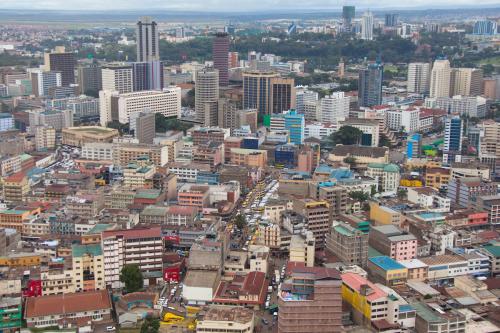

Past Event
For the latest on city and community leadership on the Sustainable Development Goals, see the SDG Leadership Cities Network and Toolkit.
The COVID-19 crisis has exposed the vulnerability of even the most thriving cities. Inequalities within cities have had catastrophic effects, and the economic fallout is affecting people and industries at a scale not seen since the Great Depression. In the U.S., protests against police brutality and a recognition that COVID-19 has disproportionately affected people of color have also elevated worldwide attention to racism and systemic inequities. Meanwhile, the climate crisis has not gone away. City leaders are eager to implement sustainable growth trajectories that address all these issues as they reopen and reshape their economies.
Recovery and “building back better” are front and center as today’s policymaking priorities. Behind these concepts are many policy choices and investment decisions that city leaders will need to make in the months and years to come. U.N. General Secretary Gutierrez emphasized that “the recovery from the COVID-19 crisis must lead to a different economy.” In their statement on the principles guiding their recovery task force, C40 mayors anchored social equity and climate action as defining the road map for cities. Likewise, the global coalition launched by the Global Resilient Cities Network calls for a resilient recovery that works for the most vulnerable. Acting on these principles will decide whether cities not only mitigate the impact of the COVID-19 crisis but also advance toward equity and sustainability.
On June 16-18, 2020, Brookings hosted a third convening of the SDG Leadership Cities initiative. Originally planned to be hosted by the city of Bristol, U.K., the meeting was held virtually due to the COVID-19 pandemic. Its themes built on two previous in-person meetings held in Mexico City in November 2020 and Bellagio, Italy in April 2019 with special attention on the economic and social implications of the pandemic and how the Sustainable Development Goals (SDGs) might guide recovery from the social dislocation and economic recession it caused.
The gathering was conducted in roundtable format, with topics explored in highly interactive sessions mixing plenary and breakout sessions. Key objectives included: exchanging innovations and lessons based on the cities’ experiences; building relationships and opportunities for continued engagement; and developing a city-specific perspective on the application of the SDGs at the local level. Sessions were held under Chatham House Rule to encourage candid discussion and problem-solving on limits, challenges, and obstacles.
Download a presentation by Brookings on the principles of recovery.
The following summary is taken from key themes raised during the conversations as well as in pre- and post-convening surveys organized by Brookings. These issues illustrate what cities leading in the SDGs are addressing as they plan for the recovery and reshaping of their cities.


Muhammad Mustapha Gambo
August 15, 2023

Anthony F. Pipa, Kait Pendrak
June 28, 2023
2023
Online only
9:30 am - 10:30 am EDT